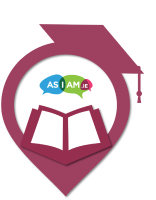Going to university or college can be a daunting experience for any young person, but making the transition to third-level can be a particularly overwhelming experience for many students with disabilities, and especially for Autistic students. Many Autistic students might feel anxious about the level of change that may be expected of them when making the transition to college, and so they might need some time to process the change caused to their routine, as well as some more support to making the next step.
The Education Act (1998) is the main piece of legislation which is concerned with promoting equality in Ireland’s education system. The Act obliges all education institutions, including colleges and universities, to provide disabled students or students with learning difficulties with appropriate resources, accommodations and supports to meet their educational needs.
Educational institutions must establish and maintain an admissions policy that allows as many people as possible to access education, including people with disabilities.
The Equal Status Act (2000) provides for a way that Universities can support disabled students to access their education called ‘Reasonable Accommodations’. Section 4 of the Equal Status Act states that “A reasonable accommodation can be any means of providing special treatment or facilities if, without such accommodations, it would be impossible or unduly difficult for the person to avail of the service provided by the educational establishment”.
However, the Act also states that the educational institution, like other service providers, do not have to provide accommodations if it causes an ‘undue burden’ financially to the institution. However, the grounds for a University claiming this is limited, and in cases where there is State funding available that can pay for the required accommodations, like the Fund for Students with Disabilities (FSD), then the institution is obliged to provide the accommodation, along with any other ‘nominal costs associated with putting the accommodation in place. The Higher Education Authority (HEA) is the key government body involved in funding and policy for disability supports.
Reasonable accommodations are there to support you to enjoy equal access to courses, benefits and facilities on an equal basis as your neurotypical or non-disabled peers, and that you face as few accessibility barriers as possible that arise from your disability.
The Disability Act (2005) places a specific obligation on higher educational institutions like colleges or universities to:
To support you in your access to education, there are a number of programmes that are designed to help disabled students receive access to education. These include entry programmes like the DARE (Disability Access Route to Education) Scheme, providing staff like Disability Support Officers/Advisors and Access Officers and different mechanisms aimed at making the transition to college easier and student life more manageable for students with disabilities.
All universities and colleges have a designated person, usually, a Disability Support Officer/Advisor or Access Officer, who is responsible for supporting students with disabilities whilst they’re on campus. They’re there to help you if you need anything specific from the College or University (like educational materials, recorders, handouts or wheelchair access) or if there are any facilities that you’re not happy with.
The Disability Support Officer/Advisor and Access Officer will be your go-to person within the colleges to discuss any concerns you might have regarding how your difference, disability or condition might impact your right to access education. Every College or University has different processes and procedures for providing support in place, so it might be a good idea to communicate with them with a view to finding out what supports are available. This can help you to make the most of your time spent at University or College. You can ask the Students Union to see if there are any specific societies for disabled or neurodivergent students, or how any of the existing clubs or societies can be made more accessible to you.
There are a number of reasons why you might want to ask for additional support. These are some examples of the supports you can ask from your Disability Officer:
Permission to record lectures
If you have any difficulties around taking notes or with sensory processing in a lecture theatre, you can ask for permission to record classes or ask the lecturer for printed notes they might use in the lecture. Some universities can provide a recorder or dictaphone to help you to record lectures during the year.
Accessible classrooms or lecture theatres
If you have any mobility issues, you can contact the university or college to make sure that all classes or facilities are accessible to you.
Personal Assistants
Some universities and colleges may be able to provide you with a Personal Assistant (PA) or Education Support Worker who can come to lectures with you and takes notes if you are unable to take notes yourself.
Exam support
Supports might include extra time for exams, scribes, asking the examiner to read the questions aloud to you, taking any exams in a separate room away from your class. In some cases, they can provide a laptop that you can use for the exam.
Accommodation
Some Universities or Colleges might provide accessible accommodation on campus. The Disability Support Officer/Advisor or Access Officer might be a good port of call if you would like to explore these options.
AHEAD (Association for Higher Education Access and Disability) can help with any queries related to how your disability, condition or difference can impact your experience in University or College. Because there is no centralised disability service for all the universities and colleges, it can be difficult to find out what supports are available on campus. AHEAD works with Universities or Colleges to find out what disability-related supports are available for students, particularly around any specific supports that your chosen University or College can provide for you.
AHEAD also provides information on assisted entry routes to higher education through the DARE scheme. They can also help you to have access to your institute’s Disability Support Services, even if you took a more conventional route to access University.
